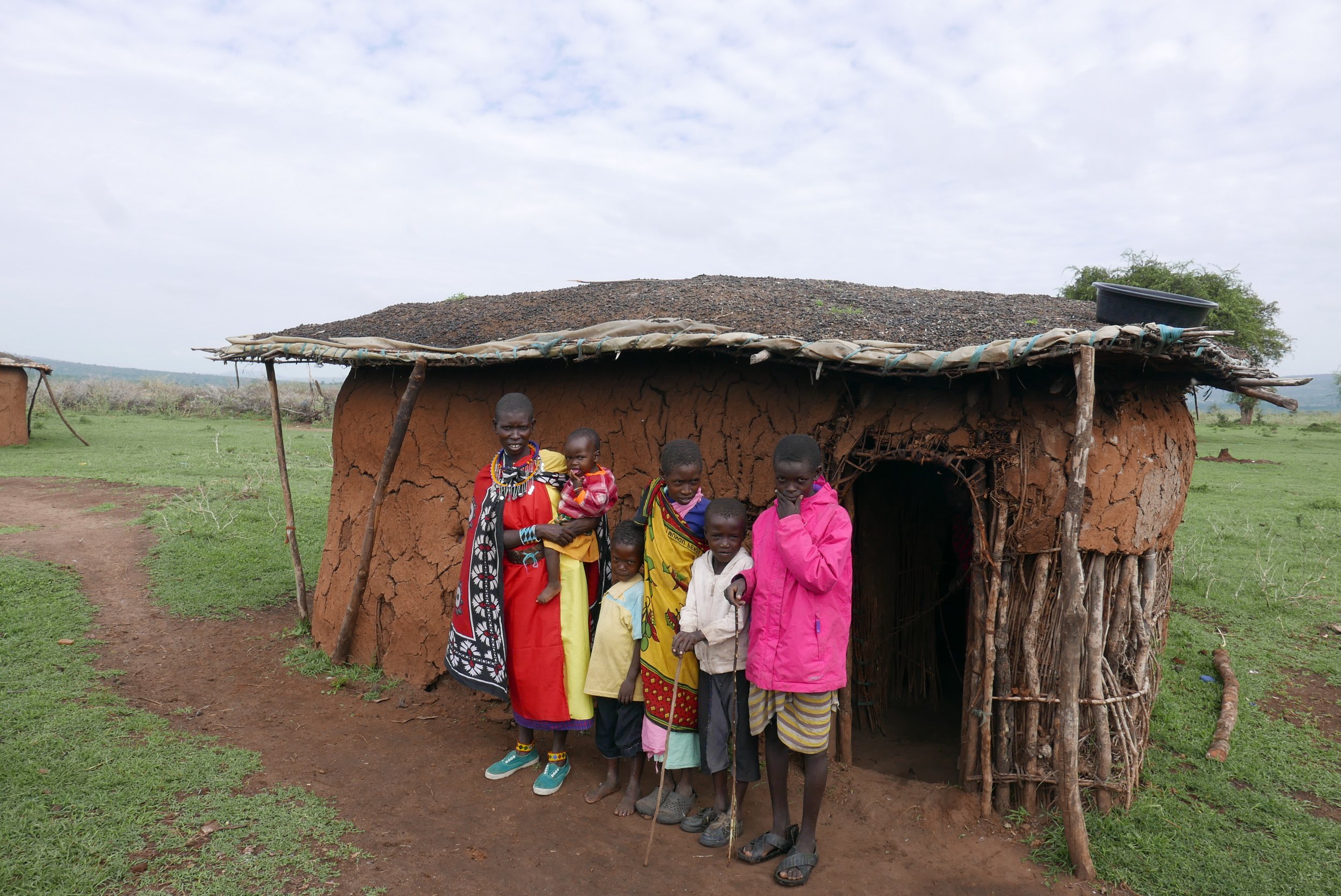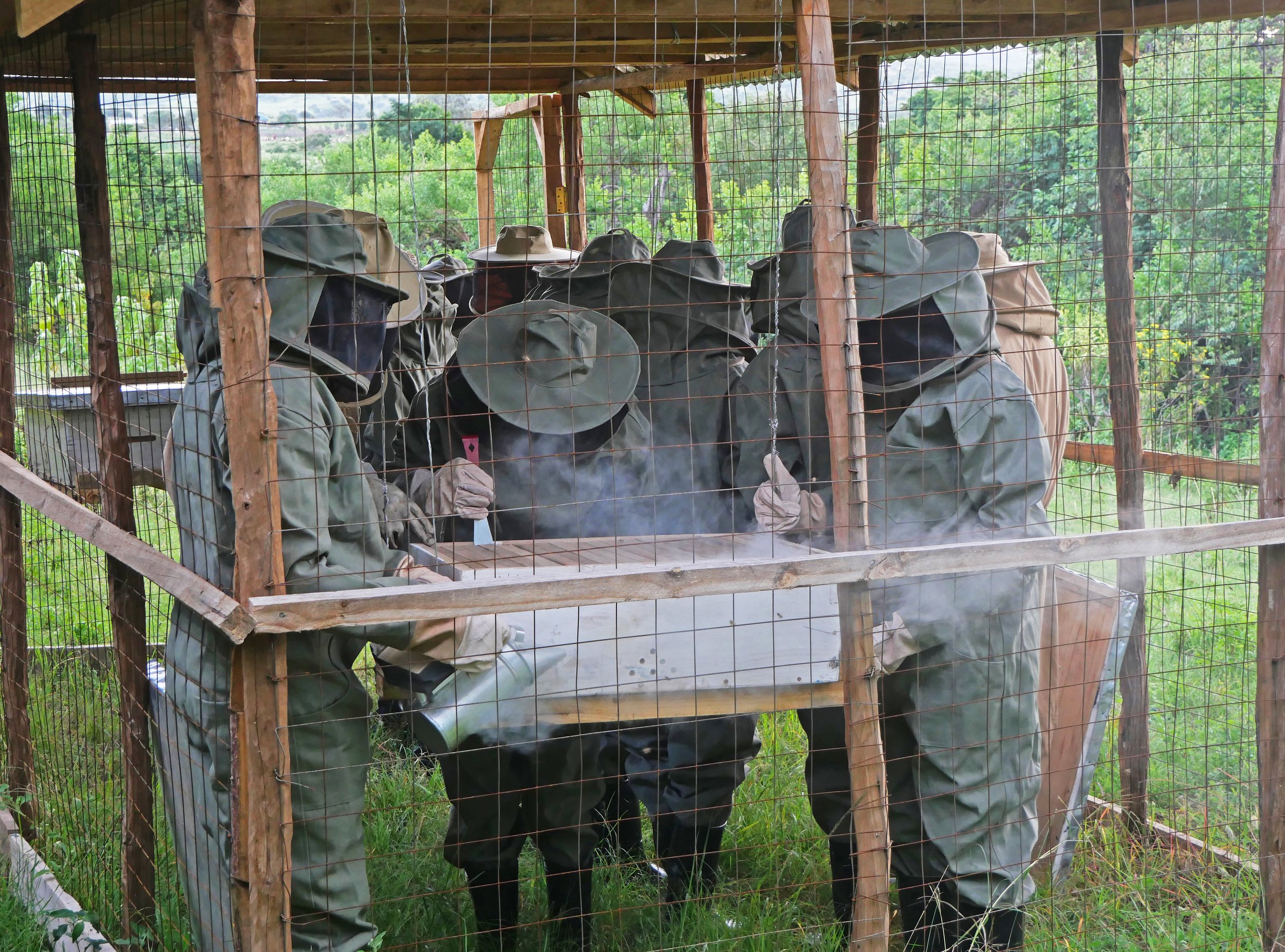

How we work
IDENTIFYING VILLAGERS IN NEED
Maasai Honey identifies beneficiaries by liaising with village leaders and local residents. Paticipants must meet a series of criteria, evaluating the benefit they would receive through training and education in beekeeping. We aim to select participants whereby the income generated through beekeeping would significantly increase their quality of life.
PROVIDING EDUCATION AND EQUIPMENT
In order to give beneficiaries a foundation to build off of, participants take part in a hands-on, 2 week beekeeping training course, while also receiving all of the necessary equipment to start their own apiary. This includes a cotton canvas bee suit (handmade in Tanzania specifically for the aggressive local bees), a bee smoker, hive tools, plus a Tanzanian top-bar hive (handmade in Tanzania). This beekeeping package gives beneficiaries a beekeeping foundation, which they can build off of as they gain more experience in beekeeping. .
ONGOING RESOURCES AND SUPPORT
Beekeeping is a complex subject with many variables that change according to the climate and context of an apiary. We aim to prepare beekeepers as much as we can during the two week course, but should the participants have any questions post-training, they can always reach out to our local beekeeping staff members. The beekeeping experts provide free support to training graduates, in order to support their development and growth as beekeepers.
“For every woman impacted, an entire family benefits”
NGO News Publication | April 2016

Where we work
Ololosokwan Village
Maasai Womens' Beekeeping cooperative
Ololosokwan is located on the edge of the Serengeti National Park in the remote region of Loliondo, Tanzania. Over ten hours from the closest city, the Maasai residents are pastoralists and live semi-nomadic lifestyles in homes crafted of mud and cow dung. Ololosokwan is where the Maasai Honey project out of a desire to give women income generating opportunities through beekeeping. It is also where we have trained the most female beekeepers, who now make up the Namelock Women’s Beekeeping Collective. Meaning “something sweet” in the Maa language, the women work together to maintain their hives, harvest honey, and conduct beekeeping activities.
Kipamba Village
Hadzabe beekeeping group
The following text is placeholder known as “lorem ipsum,” which is scrambled Latin used by designers to mimic real copy. Lorem ipsum dolor sit amet, consectetur adipiscing elit. Sed non finibus tellus. Donec laoreet ipsum vel eleifend tempor. Suspendisse eu suscipit enim. Lorem ipsum dolor sit amet, consectetur adipiscing elit. Lorem ipsum dolor sit amet, consectetur adipiscing elit. Quisque elementum euismod ex, eget interdum mauris ullamcorper id. Curabitur id consequat elit.







Ready to help?
Donate
—
Buy Honey

